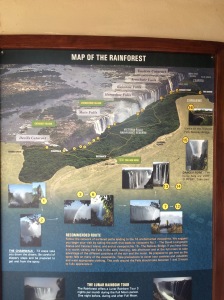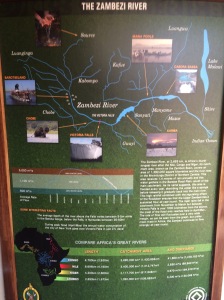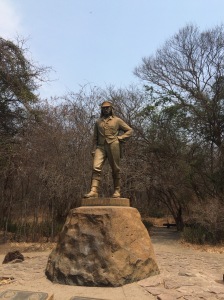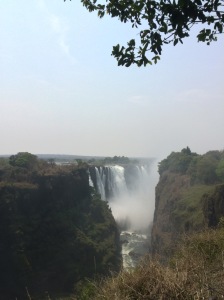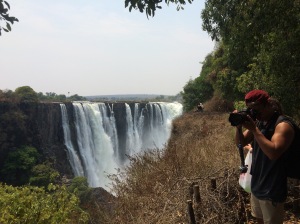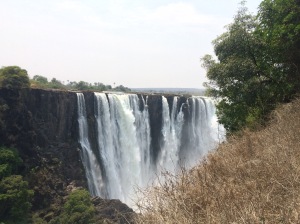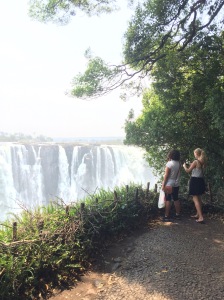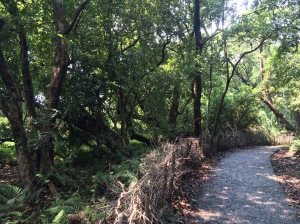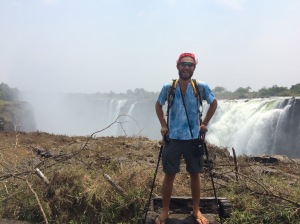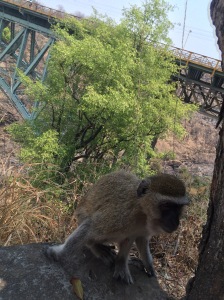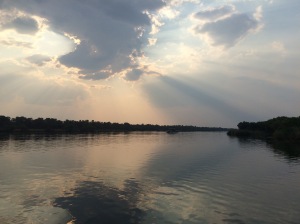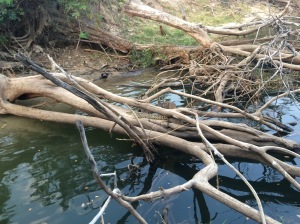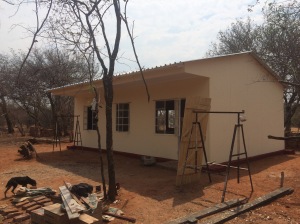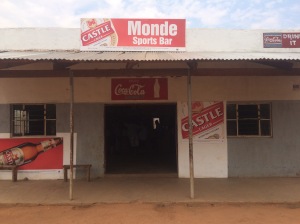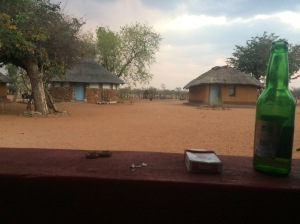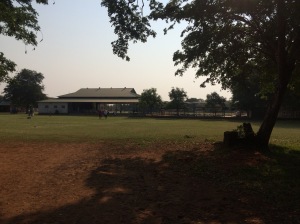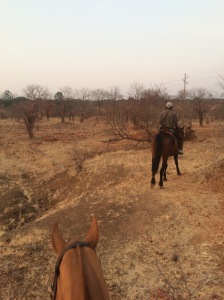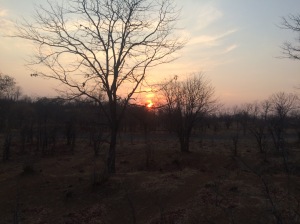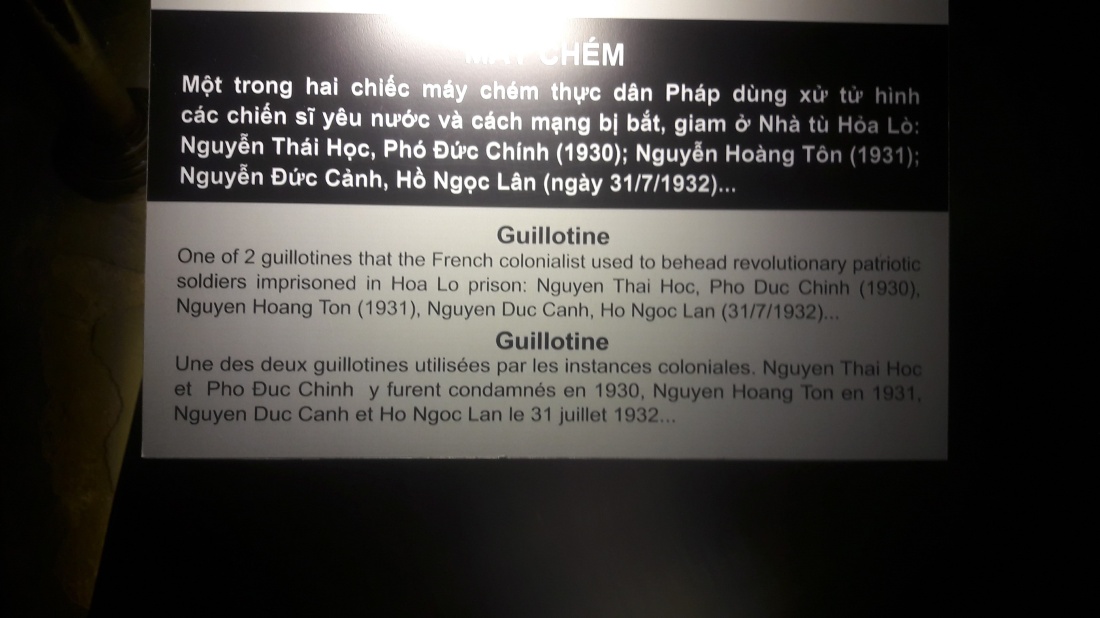








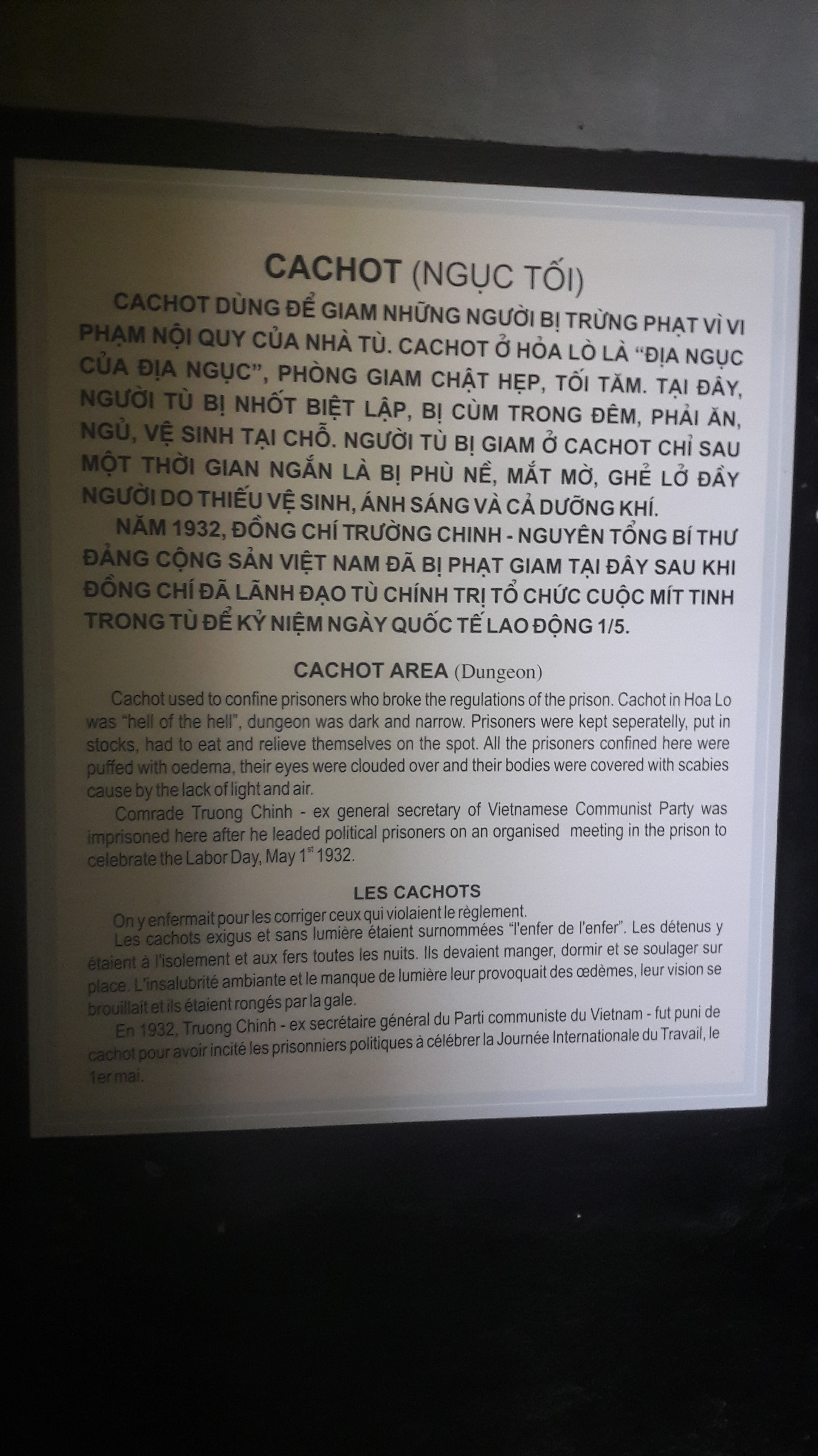

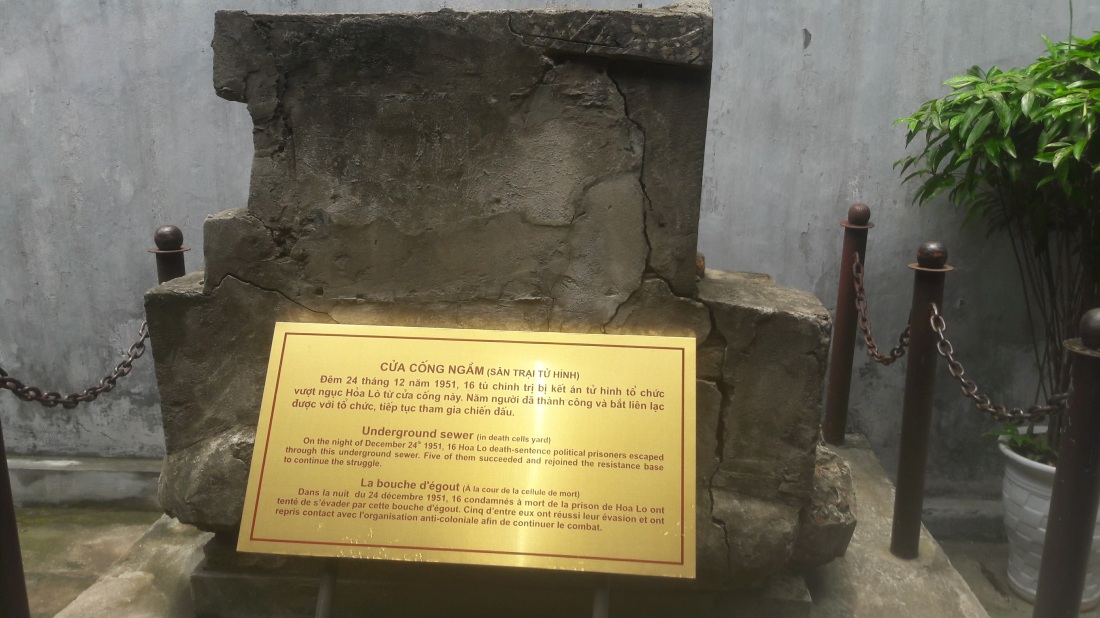



Adjusting
It’s been an odd first full week in Hanoi. I’m still adjusting to many of the differences between here and the places I’ve previously lived. The traffic-drivers, bikes, pedestrians-is hard to anticipate. The language barrier presents new challenges every day. And the weather is unlike anything I’ve ever experienced. But I’ve also been to a couple of fantastic museums, a beautiful flower farm, and a wonderful play followed by live music performance. All completely spectacular experiences in unique ways.
The driving is unpredictable and somewhat frightening, but somehow everyone seems to have just enough luck on their side just enough of the time to avoid serious collisions. It’s unexpectedly more chaotic than any of the driving I experienced in Africa even with them driving on the right (literally) side of the road. (I’m assuming that’s due to the sheer density of the city and vehicles on the road). Getting around has been difficult. I made the mistake of getting an internet-only SIM card for my phone because that would have worked just fine in Africa, and I expected it to be similar here. However, there is an Uber-like company here called Grab that is cheaper and seemingly more accessible, but it requires a Vietnamese phone number. I’ll have to go get a new SIM card when I use up my credit. These companies both offer motorcycle services which I’ve been using for the sake of time, but doing so with crutches and my boot is always an interesting situation. Luckily, this upcoming Friday I will be out of the boot and be walking.
Even though I have never felt so unable to verbally communicate with locals in my life, being exposed to such a drastically new language has been interesting, to say the least. I’m being pushed constantly out of my comfort zone with other forms of communication. I had to download Google Translate’s full Vietnamese dictionary so that even without the internet I would be able to communicate, so long as my phone has battery. Also, hand gestures and facial expressions have become communication staples already. My attempts to learn the language have so far proven futile-I just can’t seem to retain all the tonal stuff, I’ll keep at it though so I expect to be further developing my forms of nonverbal communication.
The weather here is bizarre as well. The humidity is constantly a factor, but the temperature fluctuates a lot. The sun rarely shines but that’s at least somewhat if not mostly due to the polluted haze that is Hanoi’s air. It has seemingly always been on the verge of either rain or sun but usually not quite there in either direction. Except for Friday when it really poured for a while. But what really had me trippin’ was that even when it was in the high teens (Centigrade,) the humidity made it feel almost bone chilling cold. And if it’s in the mid 20’s then the humidity makes it feel blistering. This is the first time I’ve really been in serious humidity since my first two weeks at UMass in August, not really a fan to be honest. It has me sweating a lot but I figure like I got used to Africa’s dusty dry heat, I’ll get used to southeast Asia’s polluted humid weather.
Since I’ve arrived I’ve also been able to get to a few of the touristy things I wanted to get to in my first couple weeks. I made it to Hỏa Lò Prison and the Vietnam National Museum of History. Hỏa Lò was one of the oldest prisons in Indochina, set up by the French in the 19th century. Over the years it has held everyone from Vietnamese political prisoners of the French to American POWs from the war in Vietnam. It was where John McCain was held captive. It was fascinating to read all this mostly new information from the perspective of the Vietnamese. I hadn’t done much cultural research before arriving and therefore only came with the America-centric misrepresentations bestowed upon me by Hollywood. This fascination with the Vietnamese perspective carried along to the Vietnam National Museum of History. At the VNMH they had artifacts ranging from ancient Buddhist steles (3rd century) to Homo Erectus teeth (~500k years ago). Tools from our evolution from that point through their independence from the French. A notable exclusion was, of course, any mention of the war with the United States. Their more modern pieces of the collection were extremely centered around hero communist leader Ho Chi Minh. The collection of “National Treasures” included his prison diary and other things written or used by him. The way they write about him so graciously is in stark contrast to anything ever uttered by the west.
Finally, two less informative but equally fun and interesting things I did this week: go to the flower farm and go to a night of live performances. The flower farm was right on the Red River which, from my reading, I had expected to be much redder. It was full of yellow and orange flowers mostly. Apparently, they harvested about 8 weeks ago right before the rains get started. That way they can get them planted in time for most of the rains, which must then come with intermittent sun right? And for the live performances; there was a play that actually featured a girl that I had met a few times while I was in Cape Town back in 2015. I went with another friend from Cape Town and we saw the play, which focused on how the west handles grief now, choosing not to feel it, it was a bizarre but sincere and compelling performance. This was followed by a band that featured another friend on the bongos. Zamina is their name and they played mostly afrobeat-type music with some reggae mixed in, it was fantastic. I had never danced that hard on my crutches, and probably won’t again before their gone.
Sorry for getting this up so late but thanks for reading anyway. See ya next week.
Good Morning Vietnammmm!!!!
We all know that classic line from the hilarious Robin Williams. But how much do any of us know about the current state of Vietnam? I know that even now, two days into my stay, I barely know a lick about the country I will be calling home for the next 3-6 months. Over that time, I plan to explore the country, the culture, the landscapes, and the wildlife. After taking a LONG hiatus from my blog, I will be posting weekly updates every Sunday (Hanoi local time) going forward. I will post photos of myself and the sights that I explore but will focus my writing on the culture, the landscapes, and the wildlife.
I’m here working as an English teacher for an organization called Coins for Change. C4C is a Vietnamese non-profit organization that focuses on removing women and children from dangerous situations. In southeast Asia, the sex trade is extremely prevalent and domestic violence isn’t always reported. However, no matter where and what the women and children come from, C4C.vn (the organization’s website) does what it can to empower them and free them through education and professional training.
I was lucky enough to get this opportunity to teach and work with two of my good friends that I volunteered with in Tanzania; Victoria and Kendall (wildteachings.wordpress.com). Follow Kendall’s blog for the same experience through a different lens.
That’s it for today. I would like to say thank you to everyone that still reads this and has stuck with me through my other travels. Also, welcome to any new readers, I can’t wait to show you how amazing the other cultures around the world can be. See ya next Sunday, and the Sunday after that. -J
For more information on Coins for Change and the possibility of working (paid or volunteer) for them, visit http://www.C4C.vn
Teaching by my lonesome
Due to some unfortunate circumstances involving the health of one of my fellow teachers, the day after I last posted, I was given the opportunity to start teach my own class without a co-teacher. I was given our ECD B students, which is a class of 16 students equivalent to our kindergarten classes in the US. These kids are all in either their first or second year of school so they may not be that proficient in English yet. And without a co-teacher to translate for me, this has presented the greatest challenge for me. However, on the flip-side, getting to completely set the days curriculum and dictate punishment and rewards for the students as I see fit is very helpful. I am a little more strict about actually devoting time to instruction as opposed to art and playtime. This, I believe, allows the kids to get a little bit more of an educational experience in our relatively short school day that they wouldn’t always get with the other teachers. In terms of punishment, as opposed to the culturally typical use of slapping and hitting, I have installed detention (with additional work to do) and other a little bit more Western punishments. My favorite, and the one that seems to work well is rearranging where they sit, or isolating them to sit with me at my desk while working on a project. And my absolutely favorite part of having my own classroom is that it has become completely secular, at least in my class.
Wi-Fi the Drug
Like most things in this world we live in, Wi-Fi connection is great in moderation but ‘lethal’ in more substantial doses. I was acutely aware of this while in the states but I saw the problem more as overusing the specific device as opposed to the endless stream of data and Wi-Fi that supplies it with all its splendor. But upon spending more and more time here I have come to believe that this wonderful resource called Wi-Fi is vastly overused and indulged in back home. I love being able to use the internet to read news, keep in-touch with distant friends, listen to and find new music, and of course, write this blog. However once you’ve finished your productive work its easy to find yourself trapped in a seemingly endless loop of Facebook to Netflix to Instagram to Snapchat. By the time you snap-out of this “screen lock” hours have passed and the day (or night) is gone and your brain aches in a dull-numb way.
Here, blessed with no electricity or Wi-Fi on my homestead, reading printed literature has become the pastime of choice when there is nothing to do. Already have I been captivated by several novels, short stories, essays, and even some poetry that I struggle to imagine myself having read back in the States where we are surrounded by this invisible drug. I highly encourage all of my readers to try turning off their routers until they have something they genuinely NEED to do on the internet, and turning it back off when they are done. And don’t just go walk to the TV; pick up a book, and if you don’t own any, head over to the library and ask the librarian for a recommendation, you might surprise yourself.
Out of Place Photos (Will try and fix ASAP, but must return to the homestead for now. Keep scrolling for new blog post)
Pinch your mouths children!
I just finished my third day of teaching out in Monde Village, and it is not at all what I expected. First of all its about a 20-60 minute walk depending on how many times I get lost on the way. It’s all on sand and through identical looking “bush.” I’m working with kids much younger than I am used to working with, and who also don’t know many of the references I would normally use to explain things. The kids, aged 4-6 have never seen computers, don’t understand or speak english well, and are frequently falling asleep in class either because of HIV/AIDS or working at their homesteads after school. We spend a lot of time in class discussing God (Christian God) and reciting bible verses which stills throws me off, having never been to a religiously affiliated school myself. I get awfully conflicted when I came to teach the science and math I have been taught my whole life; the universe started at the big bang, the earth formed over millions of years, and that life took equally long to evolve and develop. But instead the kids recite, every morning, how God created both the Heavens and the Earth in a sweeping motion and then did the same with all people and animals. I sit there and pinch my mouth, just as we command the kids to do whenever they get too loud and distracted. No “quiet coyote” here. The teaching is broken down into 2 blocks 8-10 and then 10:30-12 but is rather inefficient, with more singing and verse recitation than anything else. At noon we feed the kids a hearty meal to make sure that they get at least one meal for the day because many of the families that send their kids to our school don’t have enough money to eat much more than that.
On another note, the daily routine here is just amazing. Everyone is up at 5 during the week and works on the homestead until about 7 when the family typically gets together for breakfast. Morning chores consist of letting out the cattle and goats to graze, letting out the chickens and collecting their eggs, raking the leaves from the sandy ground, and sweeping your room of the sand that you inevitably bring in every time you go inside. (None of the rooms are connected, each room is its own independent structure.) After breakfast, its off to school or back to the garden/cows/goats. By the time I get back from school around 1pm the sun is high and it is far too hot to do much around the homestead. Me and the family will sit under the tree in the shade and listen to the radio, talk, and read. As the sun lowers in the sky we get started on evening chores and preparing dinner. The garden is watered, the cattle and cows are rounded up, and the sudsa set to boil. As soon as its dark around 7-7:30 people are off to bed. I have been reading a little before going to bed, but still getting to sleep by around 9, quite different from home for sure.
Homesteads and Horses
Over the past few days I have been quite busy moving and exploring the bush. Two days ago I moved from my hostel in Victoria Falls, to my new own little room on the headmasters homestead. He is a very gentle and funny old man who was so nice as to let me live with him for at least a good part of the time I will be here. It’s about 14kms outside of Vic falls, and about a km away from the local “bar.” He has a bucket shower and a pit toilet. A chicken coup and a garden. And even a pasture full of cows. He lives there with his wife and some extended family members whom I am supposed to feel at home with, which is not a difficult task. My first night there, half the sky was storming with lightning and the other half was crystal clear, completely filled with stars. My first meal on the homestead consisted of Sudsa, baked beans, and vegetables; all of which you eat with your hand. For those of you that don’t know, Sudsa is the traditional African base you have with almost every meal. It itself is flavorless with a similar texture to mashed potatoes. You scoop up a small bit with your hand and then scoop some of the beans, vegetables, or meat and eat them together. It’s absolutely one of my new favorite dishes.
This morning I woke up at 5 to go on a sunrise game drive on horseback. I saw elephants, kudu, Impala, aardvarks, crocodiles, warthogs, wild buffalo (very different from American buffalo), and all kinds of birds. The first hour and a half of the game drive went without seeing any wildlife, just an incredible sunrise over the bush. While the sky was bright red, the bush was dead (we are nearing the end of the dry season), but everything was majestically tranquil. Going on horseback you didn’t have the distracting engine noise, or flying dust to disrupt the scene. For anyone looking to travel in Africa, I highly recommend going on safari in an unorthodox method that promotes your connection to the bush. It’s a little more work, but well worth it. As soon as I finish writing this I will return to the homestead and get back to work. I’m not sure if I’ll be back in town until next Friday so I apologize in advance if I don’t post until then. Will update the pictures then too.
On a completely unrelated note, after another mass shooting in the United States, I have been asked multiple times how we still allow people who intend to harm other humans arm themselves with no regulation or even data on gun issuance and ownership. We HAVE to keep working towards the implementation of common sense gun laws.
Duck Foxy
Disclaimer: Skip the first paragraph if you don’t care about the effects of certain anti-malaria drugs on my bowels.
So as many of you know, when traveling abroad in certain countries there are certain medications you take to prevent yourself from catching the local illnesses that may be in whatever region you are traveling in. For me traveling in a malaria country, that means I have a couple options. I was prescribed two different anti-malaria medications. The first was doxycycline, and the second was malarone. For logistical reasons I chose to begin my journey with the doxycycline, and screw that. After taking the medication last night, the same way I have for the past 4 days, I proceeded to get quite nauseous and then started vomiting shortly there after. I wasn’t able to eat or sleep last night what-so-ever because of it. I have since switched to my malarone and am feeling fine as of now. (The gist is have multiple options because you don’t know what side effects you will have until you start taking it)
Fortunately, although having a less than desirable ending to my day yesterday, the morning and afternoon proved to be amazing. After a great breakfast here at Victoria Falls Backpacker’s, I went into town and met up with my new Zimbabwean friend Domisu. He and I then went for a long (~20km) walk out to his village. There he took me to the local futbol pitch and explained the traditions of having tons of games with local teams on Saturday and Sunday afternoons. After visiting the pitch, we went to several ‘flea markets,’ that were not at all attended by tourists, at least not that I saw. Nothing was being sold for more than 4USD yet they had everything imaginable. From solar panels to corn meal, you needed it and they had it. (By the way for those you you that don’t know, Zimbabwe uses the USD because their currency over inflated-check photos tab.) After that we played some ‘Draft’ with some old villagers while I ATTEMPTED to practice some of the little Ndebele I had been taught. (Draft is a board game nearly identical to checkers with a few different rules to make it faster and more exciting.) Finally, before catching a taxi back to the hostel–not walking another 20km while its 39C–we went and visited the high school, primary school, and two pre-schools in his town. That was great, one of my favorite parts of the day, because I was able to meet with several teachers and get some advice on things that work and don’t work teaching in this area.
With only two days left before I travel out to Monde, I’m feeling eager to get started at the school.
Stuck in the airport
I have yet to leave the airport and already the foreignness of this new place is somewhat overwhelming. As I write this its 4AM at the Johannesburg airport. There are maybe fifteen other travelers in the terminal, but we are all sitting at the same set of benches. Only five of us have multiple bags as luggage, and those of who do, are the only ones not sleeping. Being somewhere where all of your stuff is somewhat up for grabs is very different. Ive never stayed awake for an overnight layover in the US. But on the plus side, its 18 to drink, Delta ran a pretty good show in getting me here, and I have already made friends with several Africans who either work here at the airport or are simply traveling through; and a woman who works at the US Embassy in Zimbabwe. I didn’t get the chance to talk at too much length with the embassy worker, but from brief two hour conversation with this airport worker I already can see where the stories of great smiles and warm hospitality come from. My best friend here in the Johannesburg is an Angolan I’m currently sharing a bench with. He has traveled almost all of Africa and was quick to correct me on any misconceptions I had about Africa. I have yet to meet someone who doesn’t seem genuinely caring, its so different from in the states. Other interesting things of note the flight & airport are the size of the newspapers, which are quite larger than in the states; the number of muslims in full dress, the amount of different languages you can hear in 20 minutes of sitting by a busy check-in area, and saran wrapping your suitcases and backpacks to prevent left. Can’t wait for the real thing tomorrow morning. Keep reading and stay posted on my journey, I’ll be posting as often as possible (hopefully about three times a week).




